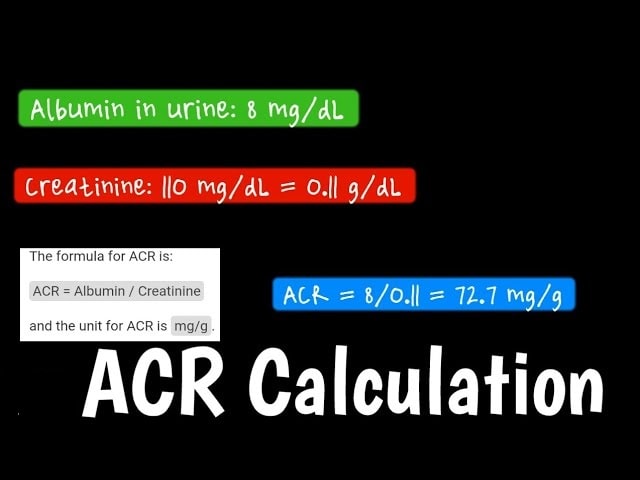Urine Albumin-Creatinine Ratio (ACR)
ACR stands for albumin to creatinine ratio. Urine albumin-creatinine ratio (ACR) or ACR when used to identify kidney disease that can occur due to complications such as diabetes.
Here a person’s urine will be tested for albumin levels. Albumin itself is the main protein found in the blood. If the kidneys are functioning properly, albumin will not be found in the urine.
However, if the kidneys are disturbed or even damaged, the kidney filtering function will be disrupted. This condition causes albumin not to be filtered and leaks, so it is wasted with urine.
Albumin is a protein that can be detected through urine to indicate whether or not kidney damage has occurred. The thing to remember is that the amount of albumin in urine indicates the severity of kidney organ disorders.
Meanwhile, creatinine is a byproduct of muscle metabolism. Usually, creatinine is excreted together with urine. The level of creatinine in urine can describe the concentration of urine. Measuring the ratio of albumin and creatinine in urine can provide an overview of the condition of the kidneys.
Reasons for Performing a Random Urine Albumin-Creatinine Ratio (ACR) Check
The purpose of a random urine albumin-creatinine ratio (ACR) examination is to detect kidney disease that occurs due to complications of diabetes or hypertension. This examination is highly recommended for those with diabetes, especially those who are uncontrolled and cause complications.
Diabetes can cause kidney damage or called diabetic kidney disease (diabetic nephropathy). High blood sugar levels that are not treated can cause damage to organs of the body, including the kidneys.
When Should You Do a Random Urine Albumin-Creatinine Ratio (ACR) Check?
Urinary albumin-creatinine ratio (ACR) testing is recommended every year after diabetes or hypertension is diagnosed. In addition, ACR testing may need to be done more frequently if albumin and creatinine levels increase significantly.
A person whose albumin and creatinine levels are slightly elevated may have early-stage kidney disease. Very high albumin and creatinine levels may indicate more severe kidney disease. The opposite is also true if albumin and creatinine levels are low, indicating that the kidneys are functioning normally.
Persistent elevation of protein (albumin) in the urine (two positive tests in 3 months or more) is a major symptom of kidney damage. It is an early marker of many types of kidney disease.
How to Check Urine Albumin-Creatinine Ratio (ACR) Randomly?
As the name suggests, the urine albumin-creatinine ratio (ACR) uses urine samples for examination. Patients will be asked to take a urine sample in the morning or at random. Later, medical personnel will analyze the albumin and creatinine in the urine in the laboratory.
Use of this ratio allows albumin concentration to be related to urine dilution (as indicated by creatinine concentration), which may depend on how much fluid the patient consumes that day.
The normal albumin or creatinine ratio result is <30 mg/dL. Increased albumin or creatinine levels can be caused by various things. Starting from kidney damage due to diabetes, hypertension, nephrotic syndrome, to kidney infections.

